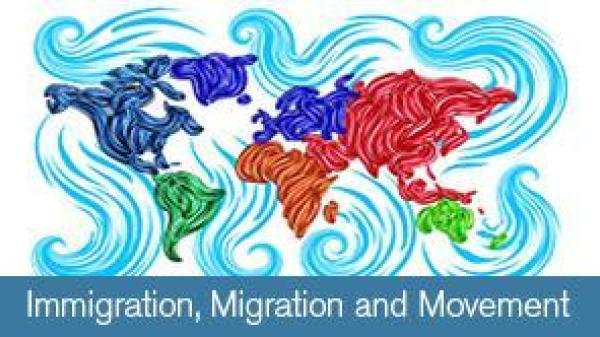2011-2012: The Humanities and Immigration, Migration, and Movement

The purpose of the 2011-12 Institute for Humanities Research Fellowship is to engage humanities scholars from various disciplines in addressing and analyzing the role of the humanities in illuminating the interrelated concepts of immigration, migration, and movement, broadly conceived. One possible approach might bring humanities questions to bear on the often economically charged issue of immigration. The economic consequences of open or closed borders are clearly central to these topics, but even more compelling may be the ideas underpinning global debates about nationhood, citizenship, and belonging; values, and social otherness; borders; questions of social justice; individual, national, and cultural identities; and the ways in which people reinvent themselves, their cultures, and their worlds in new contexts.
A second approach to the theme might entail reading migration in terms of humanities knowledge in interaction with scholarship in the sciences and social sciences. For example, the humanities ask us to consider underlying ideas about bodies, nature, and the very concept of materiality. They, therefore, interrogate our understanding of the environment, our knowledge of specific ecosystems, our understandings about place, our definitions of species, and our notions of what it means to be human—all aspects of migration, immigration, and movement.
This fellowship aims to focus on the ways in which humanities scholarship can contribute to examining immigration, migration, and movement as seen locally, transnationally, and globally. The following list presents pathways into the theme that engage the topic from within a humanities frame, and is meant to be suggestive rather than restrictive:
- the sociocultural impact of immigration restrictions
- social justice and human rights in a U.S. or global context
- the reinvention of “homelands” (national, transnational, ethnic, cultural) and the reinforcement of borders
- migration and linguistic, religious, gender, ethnic, racial, or cultural identities
- media and migration
- migration and translation
- migration and the foreign
- historical case studies of migration
- the human and cultural consequences of material movements and circulations, such as information transmission(s), transspecies migrations, disease transmission, genetic alterations, and the movement of material objects
- strategies for local, transnational, and global solidarities
Click here to view the Fellows Symposium Session 1
Click here to view the Fellows Symposium Session 2